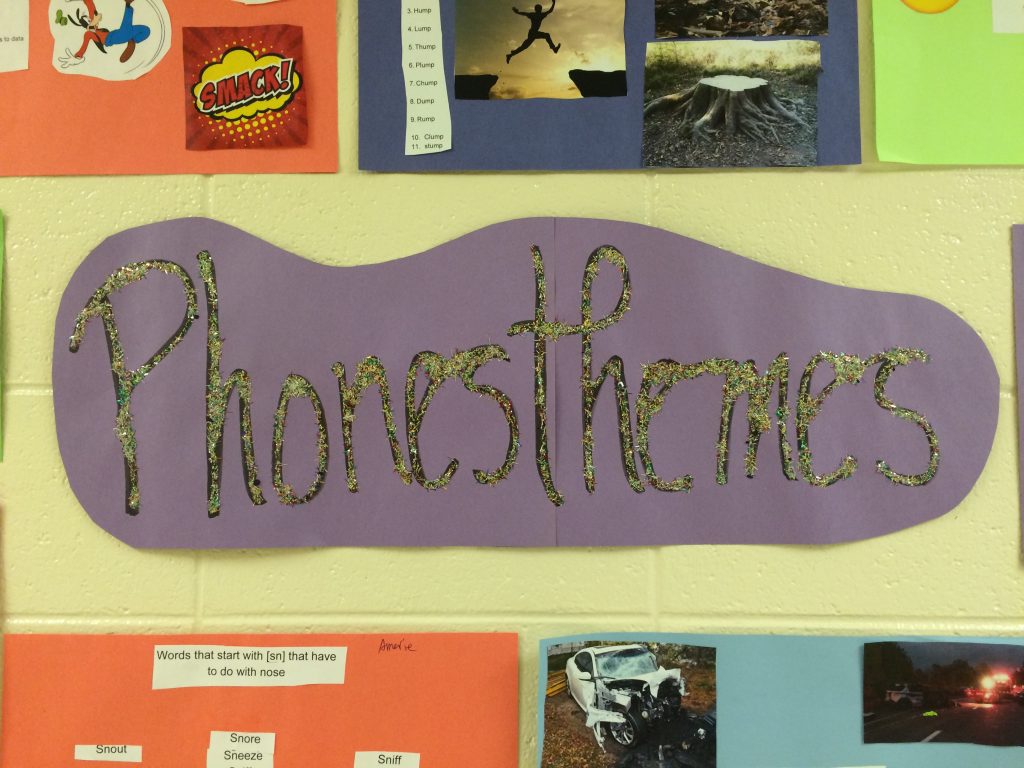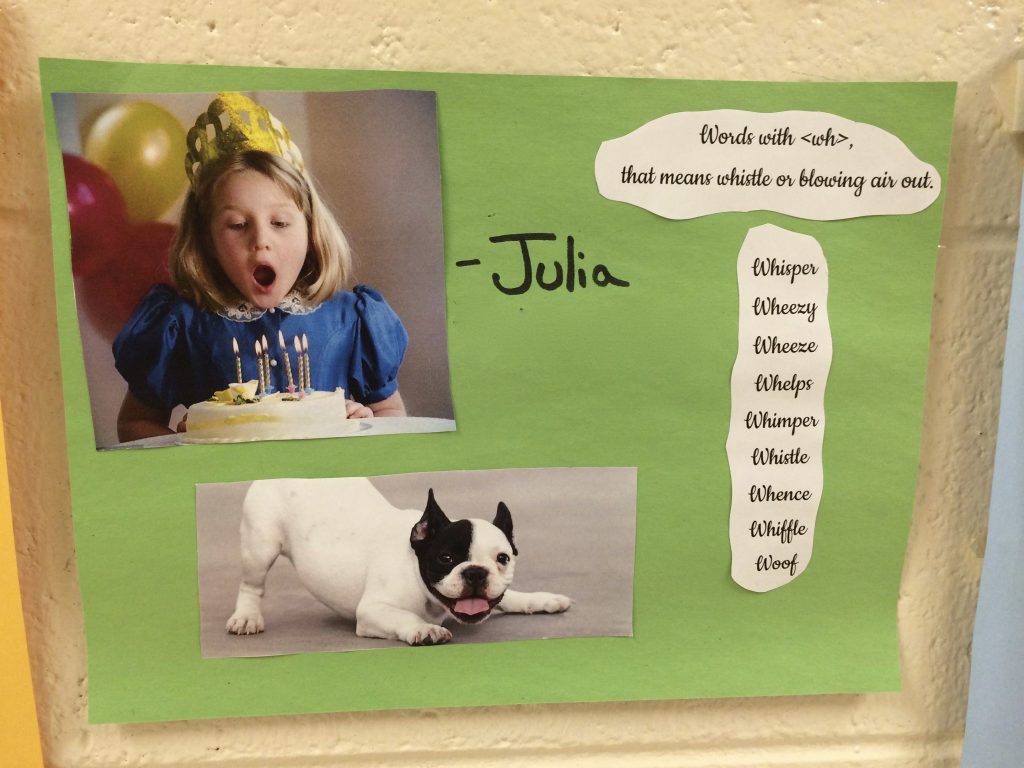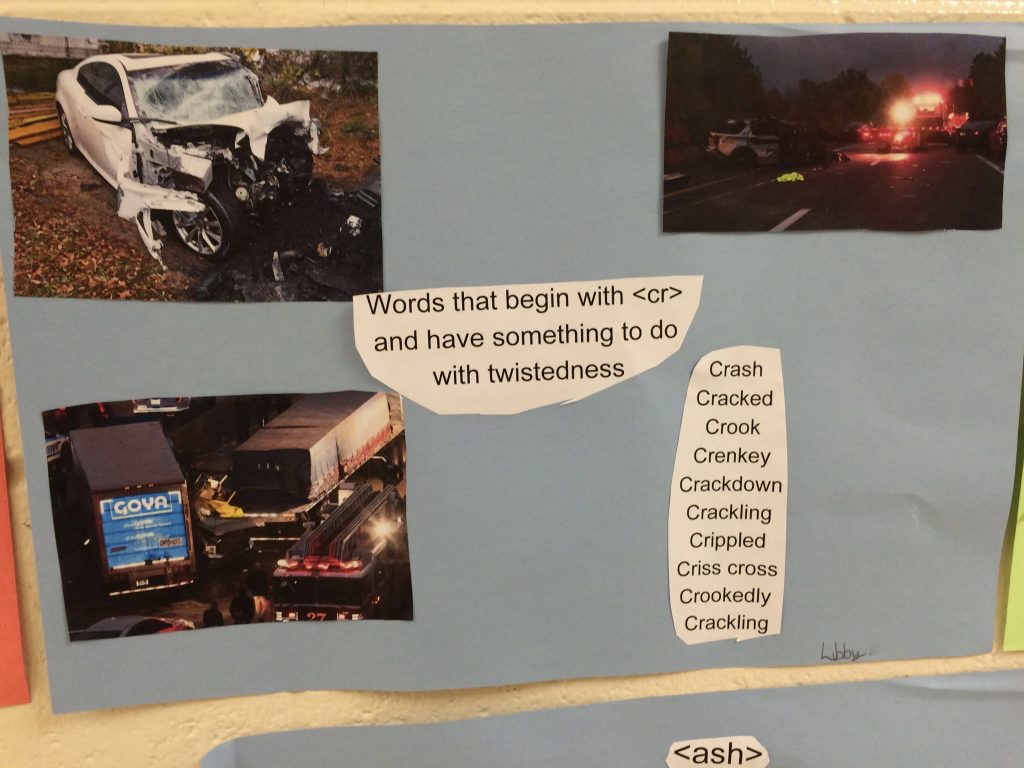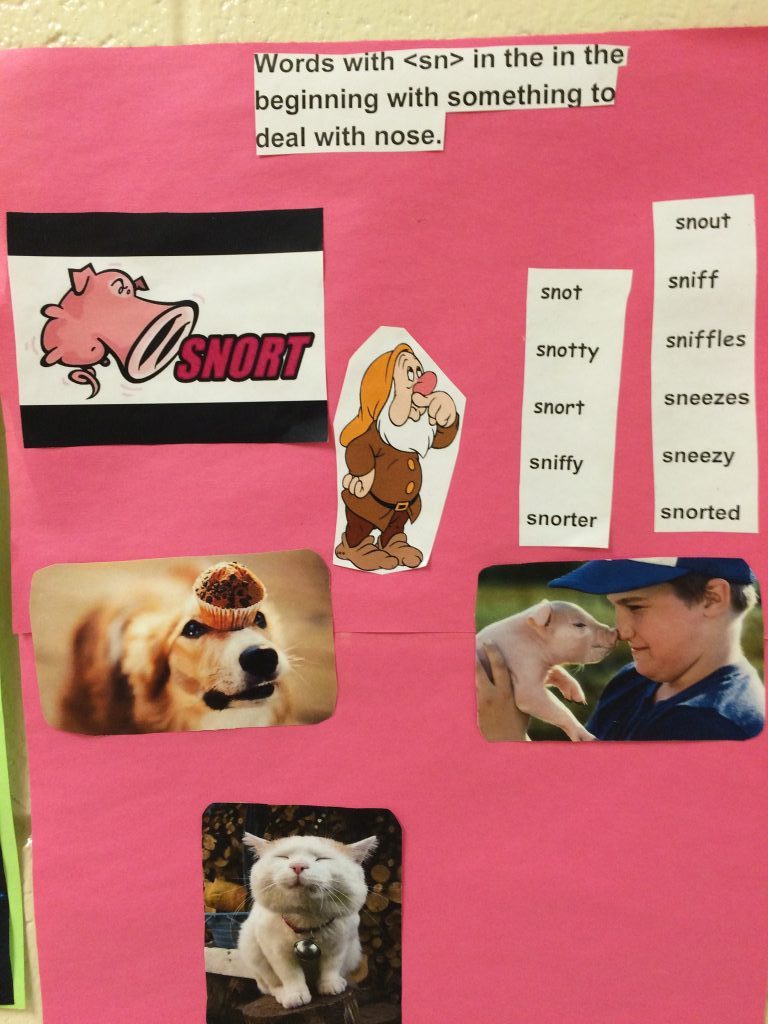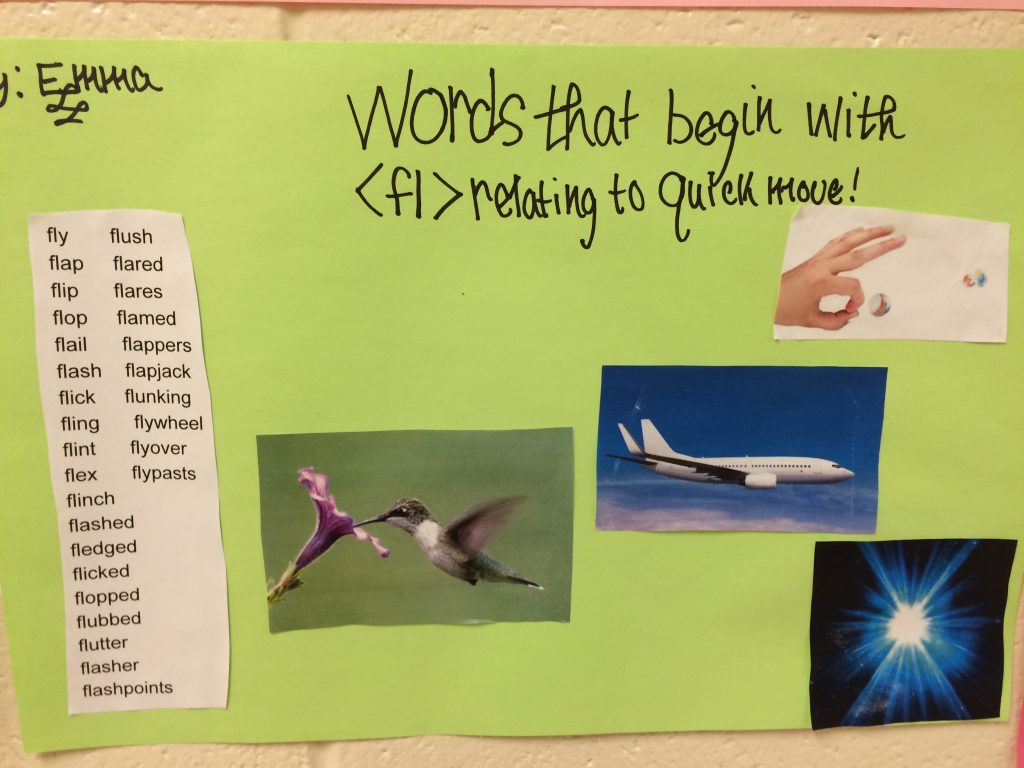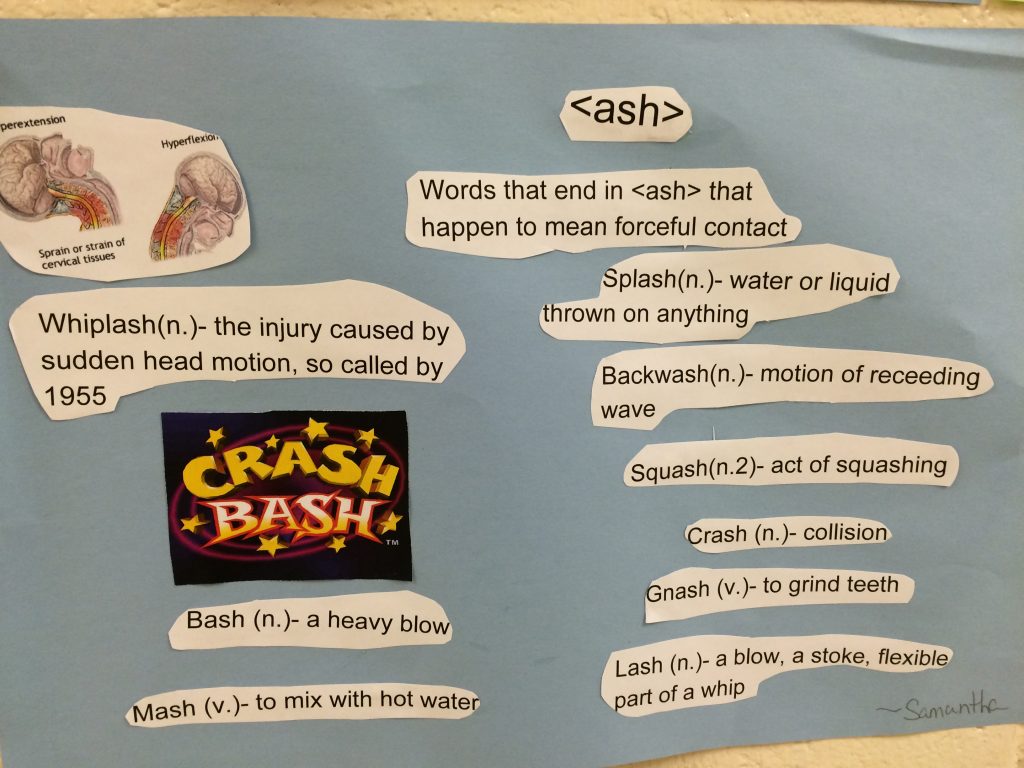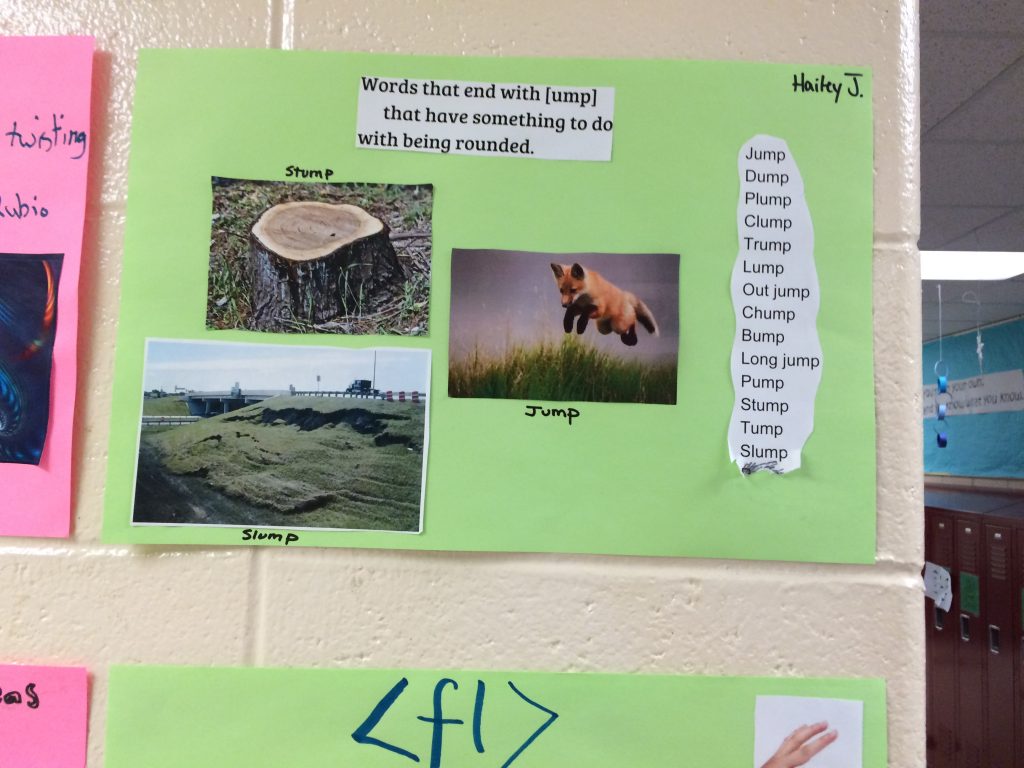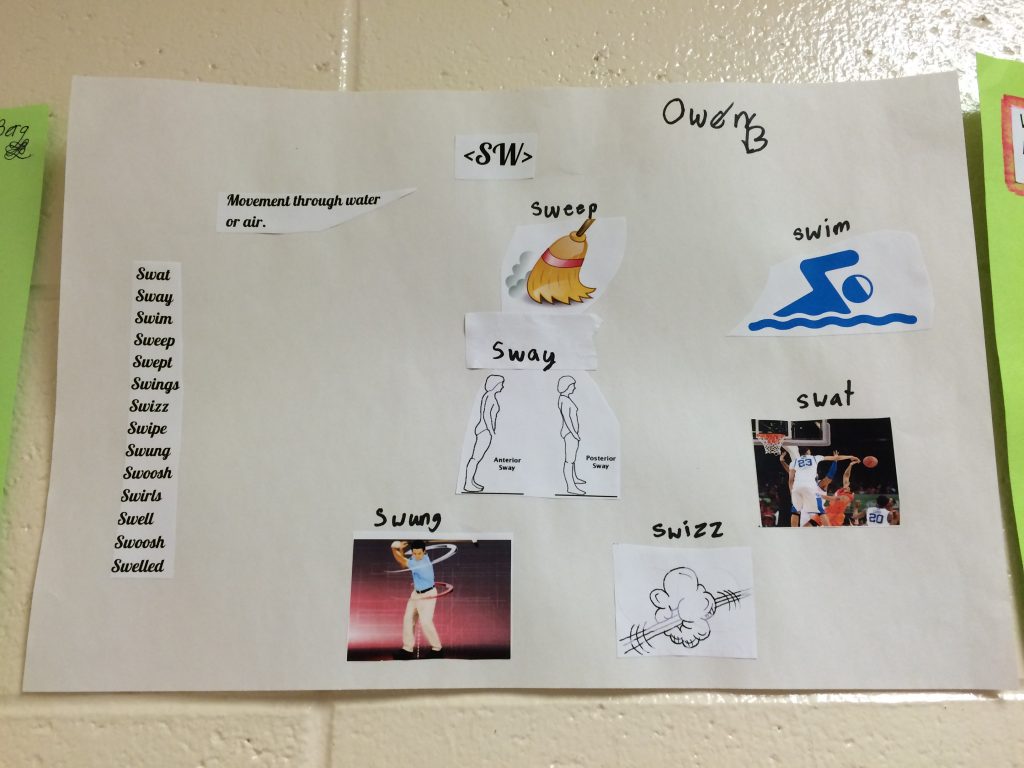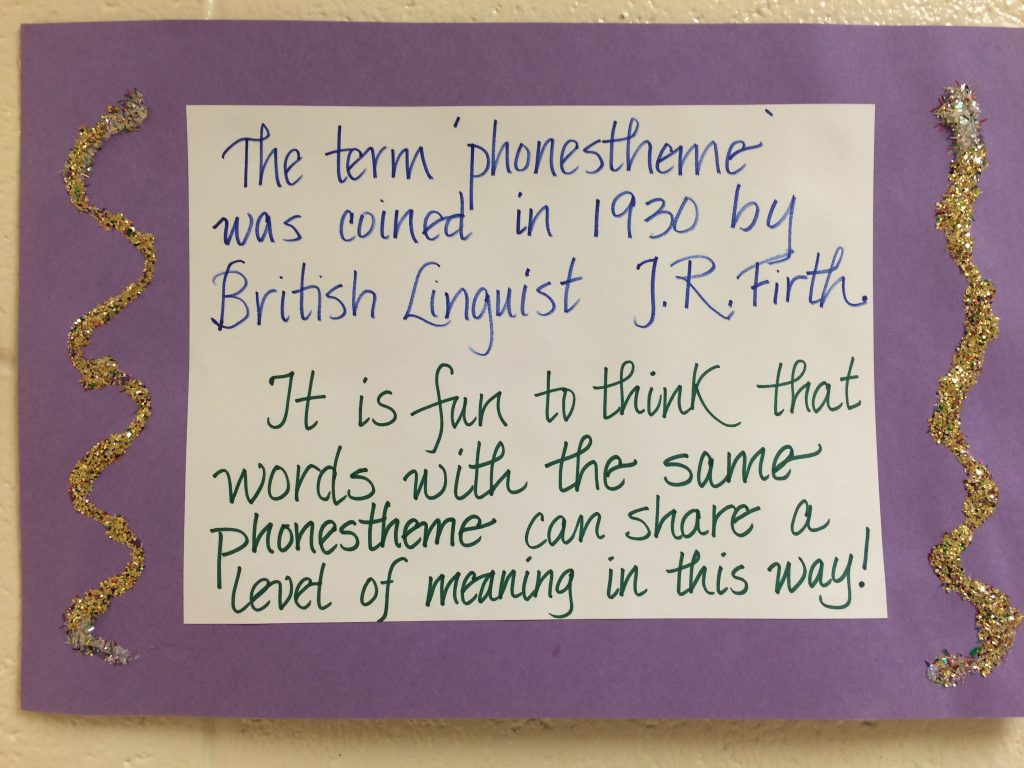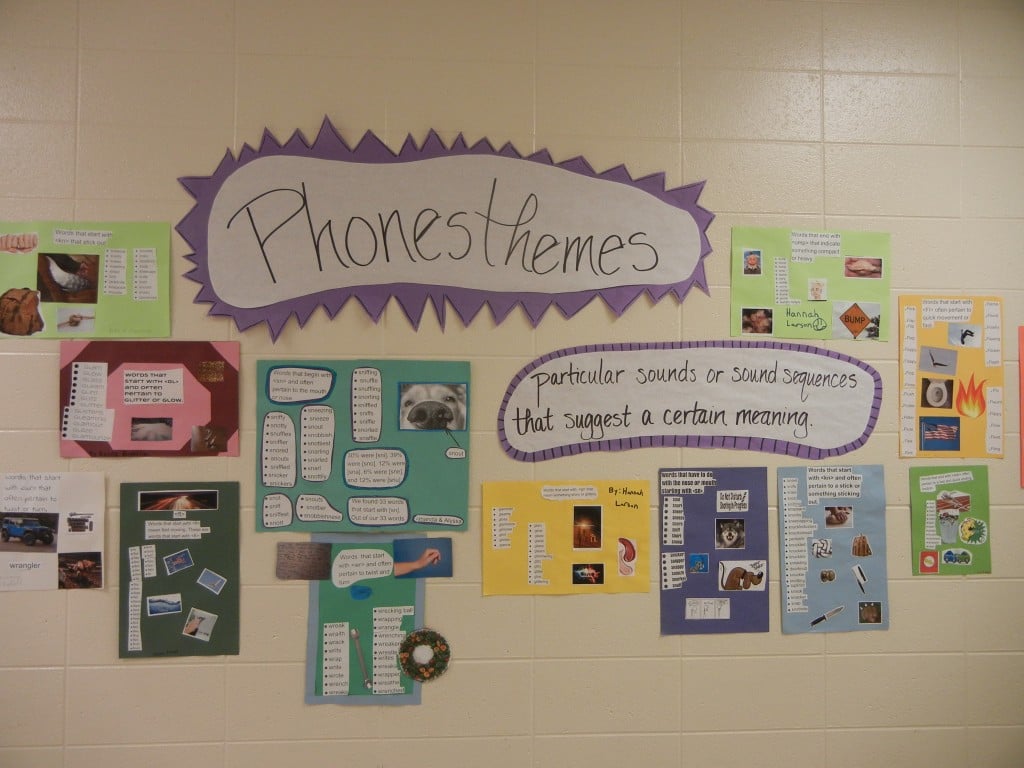When I first meet my students, they have little experience writing poems. They have only written haiku poems as far as I know. And although I love haiku poems, I want them to experience writing in free verse. I find so much more of a person’s personal truth can be revealed in a free verse poem than in any other type. No matter what the topic is, bits of the writer start to show up in their very first poem. It’s the kind of thing you recognize the more you know the student. Their writer’s voice is there in their word choice. It’s there in the way they put words together. It’s there in the message they embed. It’s there in the poem’s tone and feel. My goal is to get them to recognize that they have a writer’s voice.
The very first poems we write towards the beginning of the year are poems inspired by a place. That place is always the woods that is conveniently located out the backdoor of the school just beyond the k-2 playground. The students go out with pencil and paper and I ask them to collect words that describe what they see. I ask them to describe what the woods feels like, smells like, looks like, and sounds like. They aren’t writing a poem at this point. They are collecting described images. I tell them that the more descriptions they collect, the more material they have to work with when we sit at our desks back in the classroom. When it feels as if they have written all they are going to write (and of course, that is less for some and not enough time for some), we head back in.
Now I give them time to play around with what they wrote down.
“Have you grouped descriptions of the same object together? Is there a logical order in which to arrange the thoughts? Are there words that are close to what you intended but not quite? Do you need a thesaurus? Reread it. Does it reflect what you saw, smelled, felt, heard?”
When there has been enough time to write a rough draft of their poem, we stop for the day. The next day, I ask them to pull them out again and reread them. Are they happy with them? Does it reflect their experience in the woods and the way it felt to them? If not, change up lines or words. Feel free to move lines around. When they are satisfied, they come to my desk and show me.
If they know how to format a poem, great. If they don’t, I help them with that. Next they type up their poem, leaving off their name. The reason I have the leave off their name is so that I can make a packet of the poems (and yes, I include the poem I wrote on the same day). Several days later, I pass out the packet of poems. I give specific directions that we are going to read the poems without asking or trying to figure out who wrote them. Instead of wondering who wrote them, we are going to focus on the poems themselves. I call on three or four students to tell me something specific they liked about each poem. If I notice that some students are not participating, I will tell them that I will be asking for their opinion on the next poem, so they should listen carefully as it’s being read.
Once we have read every poem in the packet, we go back through the packet and I let them have 3 guesses as to who wrote each of the poems. If they don’t guess, I ask, “Who wrote this poem?” The person who wrote it raises their hand. It is fun to see the reactions when the writer is revealed because often this changes the way some students think of other students. If we do this two or three times in the school year, students begin to guess correctly about certain poems because they begin to recognize the writing voice that students have. That’s really cool to see!
The great thing about doing this is that every student gets some positive feedback on their poem. It might be the way they ended the poem. It might be a particular word they used that fit just right. It might be an image they created with words that others could relate to. It might be the overall feeling and tone of the poem. It’s been an effective way to show each student that they have a point of view that others can relate to, and that they can communicate that with words.
After sharing poems in this way, the students are more willing to spend time writing poems. I try to inspire that writing by giving them a poem to use as a model or by taking them to an inspiring location. One day we went outside on a slightly drizzly day. Another day we donned our coats and boots and walked into the woods on a day it was snowing!
This past January we were writing new poems. The weather wasn’t particularly inspiring, so I thought of another idea. Several years ago, I bought Sara Holbrook’s book, Practical Poetry. I really liked the way she had her students develop poems around emotions. I had my students do the same. The poems were great! But before long, I had broadened the topic to abstract nouns in general. Emotions are abstract nouns, but so are personal characteristics and all sorts of things that end up being interesting poetry topics.
The day we began, I let the students brainstorm a collection of abstract nouns. As a student thought of one, I had them write it on the board. Once the board was full, I told them that they would be choosing one of the nouns to write a poem about. They weren’t to describe the noun directly, but instead were to talk to the noun as if they could! They were to say what it felt important to say. I read some examples written by former students who used the topics of hatred, segregation, and prejudice (we were studying the Civil Rights Movement at the time). I told them to try writing about a few of the nouns, testing to see which one they had the most to say about. Here are ten examples of the poems written that week.
Positivity
You’re the motor that keeps me going when I feel down.
You pick me up when I’m lacking strength.
You’re my best friend.
You cheer me up.
When I doubt myself, you say otherwise.
When I’m playing sports, you give me a boost.
In basketball, you say I can make it when I have a free throw.
~~Jack
Anger
Anger, I hate you.
You’re the one who gets me in trouble.
You bring out the fire in me
that either hurts someone
mentally or physically.
You make me mad.
When you take over,
I get out of control, and
I sometimes do bad things.
What I hate most about you
is that you bring out
the demon inside of me.
I hurt people when you come out.
~~David
Embarrassment
You sir, are a super glue.
You stick to my memory
and become a forever regret.
I wish I could break the handcuffs
that keep us together,
but it will never happen.
All the faces staring
make me want to disintegrate
and fall into a world without you.
I wish I could just forget you,
or the time I was forced
to sing a stupid song
in a humiliating outfit.
Embarrassment scars you for life.
~~Adalina
Darkness
Stuck in the dark,
with nowhere to go.
Stuck in the dark,
With no one I know.
Stuck in the dark,
But still there is light.
Stuck in the dark,
All through the night.
Stuck in the dark,
But I’ll make it to the day.
Stuck in the dark,
But I’ll be okay.
~~Kailyn
Anger
Anger you burn inside me
like a fire
burning a house.
You make me want to shout
and yell
and hit things.
Sometimes you stay for a little bit,
other times
you decide to stay for days
or even weeks.
When I feel anger,
it feels like I’m trapped
in a world of your tricks.
Anger, you have no place inside me.
Leave.
~~Addison
Shadow
The scary dark figure
right behind you.
follows you ‘till night.
Then with a blink of an eye
he’s out of sight.
Nowhere to be seen.
Then it’s a new day.
And he follows you again.
Terrified, you scream.
Oh, it’s just my shadow.
~~Ari
Future
I can not see you or feel you,
but I know you’re coming.
All I wonder is,
are you going to change?
Will I change because of you?
Will my life change?
Can I be the reason that you change?
So many questions
for the future.
~~Sina
AIR
You are the breeze
that knocks me down a mountain.
You are faster than an airplane
yet slower than a turtle.
You can be disastrous
like hurricane Katrina
or nice and cool
like at a picnic.
~~Ali
Creativity
I like it when you come.
I can do things and have
a more open mind with them.
You help me at home, at school,
at art, and everywhere in between.
Sometimes you give me
more than I can use.
Sometimes you are
just out of reach.
~~Colin
Lies
You hurt.
You start fights and rumors.
You cover things up.
You go on.
You don’t.
People could tell the truth,
but they use you instead.
With a lie, you can create
pain,
misery,
questions, and
ruined friendships.
Why do you exist?
~~Sofia
One thing I really like about these poems is that it helped my students better understand how they feel about the meaning behind the nouns they chose. I often tell them that writing helps you know your own thoughts better. When you write about them, you don’t necessarily plan out how you feel before you start. But by the time you are done, you have a pretty good idea of what that word means to you! And if you can write it in such a way that others can relate to what you say, you’ve written a poem. If you can write it in such a way that others can relate to it and are touched that you said it in a way they hadn’t thought of, then you have written a great poem!


